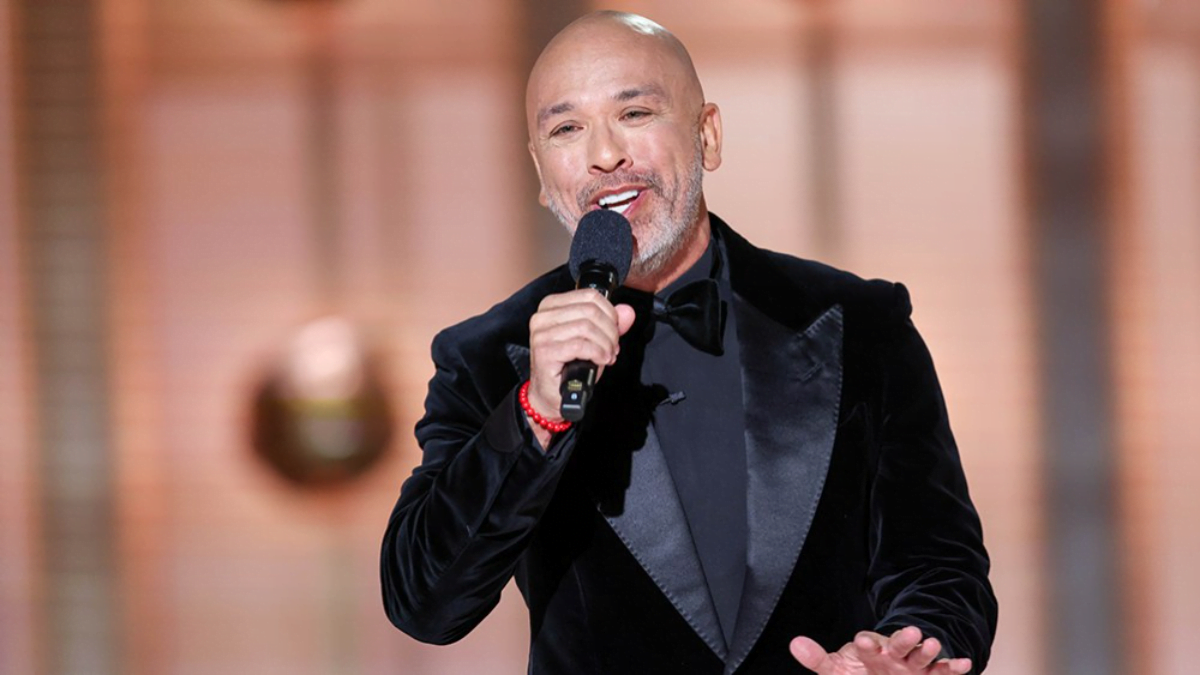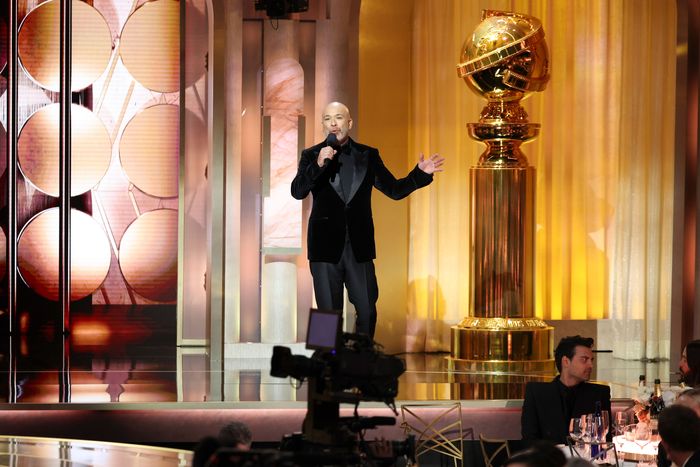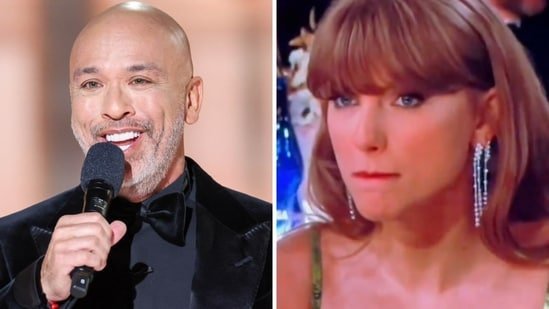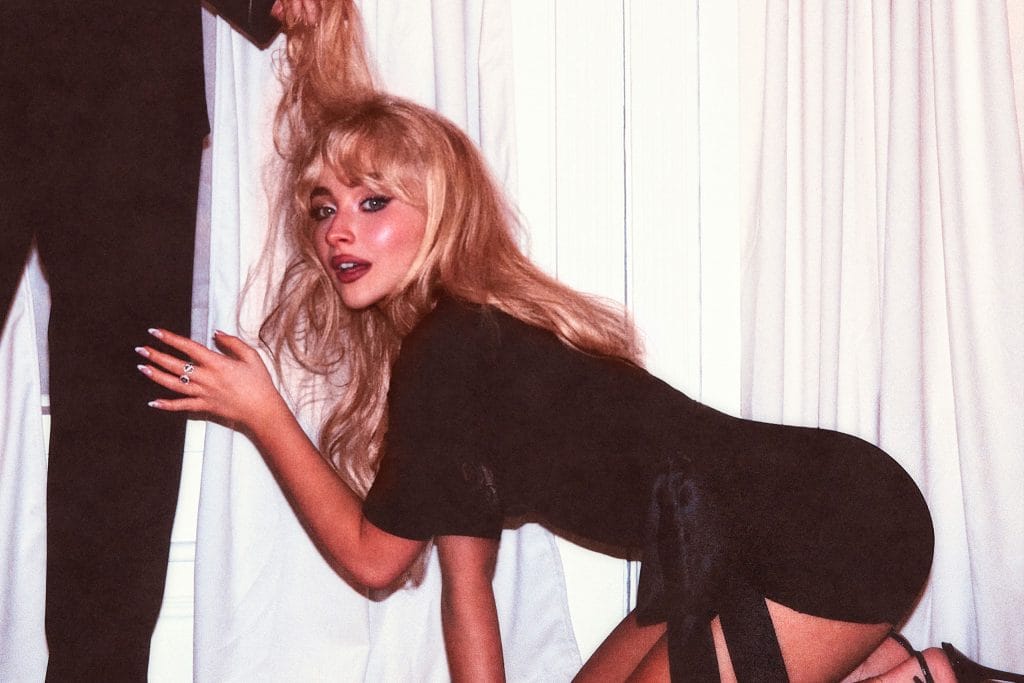The 81st Golden Globes, heralding the commencement of the award season, unfolded with a tapestry of achievements and controversies that centered around a disconcerting theme. Airing live from Los Angeles on Sunday, January 7, the prestigious event not only witnessed intense competition between celebrated contenders like Barbie vs. Oppenheimer and Timothée Chalamet vs. Nicholas Cage, but also unexpectedly plunged into a disheartening clash—host Jo Koy was entangled in a controversy that unveiled a concerning undercurrent of misogyny permeating the awards ceremony.
Despite the acknowledgement of diverse winners, the spotlight shifted towards criticism of Jo Koy’s opening monologue, accused of being sexist and inappropriate, particularly towards certain nominated women.
Despite the acknowledgement of diverse winners, the spotlight shifted towards criticism of Jo Koy’s opening monologue, accused of being sexist and inappropriate, particularly towards certain nominated women. On a night intended to celebrate the achievements of the same year, it is disheartening to witness the persistence of jokes at the expense of women.
As one delves into the intricacies of the misogyny that marred the 81st Golden Globes, shedding light on the implications of such incidents within the realm of prestigious award ceremonies, it raises concerns about the prevailing misogyny disguised as mere unfunny and inappropriate “jokes”.
What were the misogynist remarks by Jo Koy at the Golden Globes?
On the award night of the Golden Globes, throughout Jo Koy’s performance, a lot of jokes fell flat, and the Barbenheimer joke was one of the least effective and misogynistic. Koy, In his monologue, targeted Greta Gerwig’s summer blockbuster, drawing comparisons between it and Christopher Nolan’s biographical thriller Oppenheimer.
On the award night of the Golden Globes, throughout Jo Koy’s performance, a lot of jokes fell flat, and the Barbenheimer joke was one of the least effective and misogynistic.
‘Oppenheimer is based on a 721-page Pulitzer Prize-winning book about the Manhattan Project and Barbie is a plastic doll with big boobies. I watched Barbie, and I loved it. I really did love it. I don’t want you guys to think I’m a creep, but it was weird being attracted to a plastic doll.’ Koy said on stage, comparing Oppeinherimer and Barbie.
He further targeted the film Barbie saying: ‘The key moment in Barbie is when she goes from perfect beauty to bad breath, cellulite and flat feet. Or, what casting directors call ‘character actor.’’
As the camera swiftly panned to the faces of the Barbie cast and crew, featuring co-writer and Oscar-nominated director Greta Gerwig, a collective displeased grimace was evident. None of the crew members appeared okay with the comment, and even Ryan Gosling, nominated for Best Supporting Actor and known for his role as Ken, seemed undelighted by Jo Koy’s inappropriate statement.
Koy distilled Barbie, a film addressing the mistreatment and objectification of women in society, to a film about plastic dolls with big boobs.
Unfortunately, the misogyny did not stop there, Koy also decided to target the pop icon Taylor Swift ‘jokingly‘, ‘The big difference between the Golden Globes and the NFL? At the Golden Globes, we have fewer camera shots of Taylor Swift.’ he said.
In reaction to the jest directed at her, Swift responded with an uncomfortable expression, taking a sip of her drink, in the video.
Remembering Swift’s words on a CBS Sunday morning interview, ‘A man does something, it’s strategic. A woman does the same thing, it’s calculated. A man is allowed to react. A woman can only overreact.’ Her comment echoes the alarming sexism and misogyny still prevailing in society that often comes forward as “harmless jokes” against women.
According to a source, Nicole Sperling, The New York Times Reporter who was in attendance, stated on platform “X” that an unnamed prominent director expressed dissatisfaction, stating, ‘They all showed up. They are all here, and this is what they give us? This is a disaster.’ Sperling herself noted that she had never witnessed an audience turn against an emcee so rapidly.
Koy’s remarks once again reinforce Barbie’s point
Gerwig’s film Barbie clinched the Golden Globe for its cinematic brilliance and global box office success, amassing an impressive $1.4 billion. The film garnered acclaim from both critics and audiences, signaling a remarkable achievement at the intersection of artistic excellence and financial triumph.
The Barbie film that tackles patriarchy offers an interesting and enjoyable critique of social structures.
The Barbie film that tackles patriarchy offers an interesting and enjoyable critique of social structures. The film offers a novel perspective on the intersection of genders as it deftly navigates the difficulties that arise from patriarchal norms through humour and satire. The story expertly strikes a mix of humorous and heartbreaking moments as Barbie struggles with these problems, encouraging the viewer to consider more general discussions about discrimination based on gender. The film effectively uses its platform to address the complexity of patriarchy, providing entertainment as well as an insightful look at the challenges women encounter in this system. And clearly, Jo Koy missed the real meaning of the film.
Therefore, sexism put forward as a mere “joke” on a platform that is as big as the Golden Globe Awards further validates the whole stance the film took.
The significance of Barbie being a comedy lies in its ability to allow audiences to engage humorously in conversations about sexism, feminism, and historically sensitive topics. Simultaneously, viewers can navigate a spectrum of emotions alongside Barbie as she embarks on a journey to understand the complexities of womanhood, where Koy’s controversial statements reinforce that sexism is still a significant issue, emphasising the importance of stories like Barbie in addressing it. What intensifies the sting of Koy’s remarks is the fact that he’s diminishing a film that resonated with many women, stripping it down to a mere sexual joke and undermining the empowerment it offered.
No, sexist remarks are never a joke.
Amid contemporary conversations surrounding gender equality, the use of sexist humor has become a focal point of concern. This issue takes center stage when disguised as jokes, prompting a closer examination of the cultural impact and implications.
Despite the fact that comedy is sometimes used to remark on society, telling overtly sexist jokes raises concerns about the unintentional reinforcement of negative stereotypes and the persistence of discriminatory beliefs. Apart from providing short-term entertainment, this kind of content has the potential to normalise impolite conduct and minimise the importance of gender barriers.
Koy’s “jokes”, however, don’t hinder them; rather, they serve as a reminder of the history of the feminist struggle and the progress that women have made.
During a year that honoured the accomplishments of women and girls, the Golden Globes presented a sexist and chauvinist comedian, which was a cynical decision.
During a year that honoured the accomplishments of women and girls, the Golden Globes presented a sexist and chauvinist comedian, which was a cynical decision. Ironically, women appear to be wrongly blamed for not accepting or supporting such sexist comedy, even despite the offensive content. It begs the question: why isn’t anyone laughing or accepting if these comments are just jokes?
Looking back at the dialogue from Barbie: ‘The real world is forever and irrevocably messed up.’
Films like Barbie and their representations go beyond women, capturing all persons as victims of patriarchal power. This societal structure forces women to adapt to male-oriented standards while conditioning men to embrace toughness, repress emotions, and, in some cases, resort to violence to accomplish their wants.
However, this remark highlights the need for a more considerate approach to entertainment as well as a bigger problem of insensitivity. This event calls into question how venues such as the Golden Globes should be promoting inclusive and courteous content—especially at a time when gender equality is an essential topic that needs to be addressed until the discrimination fades off completely.








